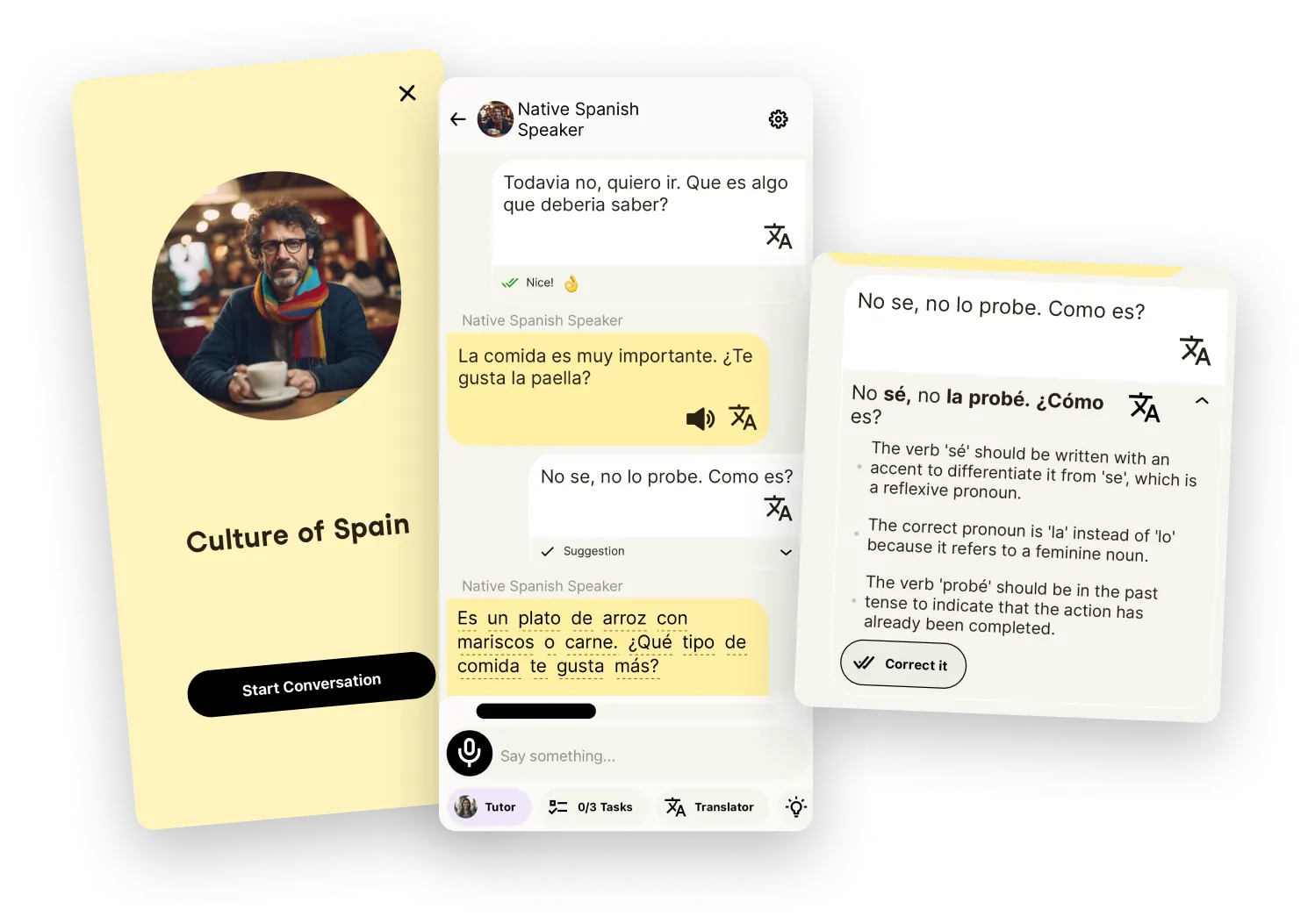Introduction: How AI is Revolutionizing Language Learning
Learning to speak a new language fluently typically requires regular practice with native speakers - a challenge for many. Today, AI-powered language learning apps are changing the game. With smart tutors in your pocket, real-life conversations and fluency are now easier to achieve, even as traditional language course enrollment declines.
If you’re curious about which app suits your needs, whether you’re traveling, learning for professional growth, or just for fun, this guide highlights the top AI language learning apps, comparing their features, strengths, and weaknesses so you can make an informed choice.
Why use AI for language learning?
AI language apps mimic having a personal tutor available 24/7. They offer interactive, engaging, and customized lessons - often adapting in real time to your mistakes and achievements. With tools for speaking, listening, reading, and writing, these apps accelerate progress and keep learning enjoyable.
Quick comparison table
App | Best For | Languages | AI Features | Pricing | Notable Cons |
|---|---|---|---|---|---|
Babbel | Structured learning | 14+ | Pronunciation feedback | $17.95/mo | Few languages, costly live |
Duolingo | Gamified learning | 40+ | AI roleplay | Free + $30/mo Max | Limited AI, ads in free version |
Univerbal | All-around, up & coming | 20+ | Adaptive conversation | $10/mo, free trial | Limited languages |
Speak | Pronunciation practice | 2 (EN, ES) | AI corrections | Free (in app purchases) | Only 2 languages, expensive premium |
TalkPal | Immersive conversation | 57+ | GPT dialogues | $9.99/mo, free tier | Robotic voices, reported bugs, limited features |
Note: Pricing and features as of June 2024. Always check app stores for the latest information.

Top AI Language Learning Apps in 2025
1. Babbel and Duolingo: The Most Well-Known AI Language Apps
Babbel
Babbel offers a modern take on self-paced and live tutor classes, blending interactive app exercises with real-time coaching. It's ideal for structured learners seeking real-world skills.
AI features
Real-time pronunciation feedback
Lesson recommendations based on performance
Focuses on common words/phrases for retention
Pros:
Comprehensive: combines digital & real-life learning with live courses
Good for workplace language training
Engaging reading/listening/speaking tools
Cons:
Can be repetitive
Limited language offering
More expensive than some competitors
Pricing: Starts at $17.95/month (discounts for long-term plans)

Duolingo
Duolingo is famous for gamified language learning. Its intuitive app and rewards system make it accessible for every age, with hundreds of bite-sized lessons. However, its focus on gamification may come at the expense of real-world speaking practice. Duolingo isn’t focused on AI language learning, but you get access to two AI features as part of their premium plan: Duolingo Max. These features are role plays and using AI to explain why your answer was correct or incorrect, in ‘Explain My Answer’.
Bottom line: If you love playing games and want to practice a language, Duolingo may be ideal for you. With daily streaks, rewards, and a variety of exercises, the AI language learning tool builds vocabulary and basic grammar skills. While it may not offer the same level of conversational depth as some other apps, its broad language selection and user-friendly interface make it a favorite among those seeking a general language app.
AI features (Duolingo Max)
AI-powered role play
"Explain My Answer" feedback
Pros:
Free tier available
Wide range of languages (>40)
Fun, competitive design
Cons:
Not conversation-focused
Can be too “game-like” and repetitive for some
AI features available only with Max ($30/month)
2. Univerbal: Best up-and-coming AI Language Tutor
Univerbal, acts as your on-demand AI-powered tutor, supporting 22 languages with adaptive instant feedback. It’s designed for practical, real-world skill building (e.g., ordering food, handling travel, or holding business conversations).
Personalizes to your interests and input
Level and topic adapt automatically
Encourages making mistakes and learning from them, judgment-free

AI features:
Adaptive conversation practice
Real-time corrections and suggestions after every message
Natural topic progression
Pros:
Blends reading, writing, listening & speaking
Diverse real-life scenarios
Encouraging, safe learning environment
Free trial and affordable subscription plan
Cons:
Currently only 22 languages (but growing!)
Pricing: Free trial, $10/month subscription
3. Speak: Best for pronunciation practice
Speak is focused entirely on spoken English and Spanish, with plans to expand. If you want to perfect pronunciation, its AI-driven curriculum and instant corrections are the star features.
AI features:
Instant corrections and improvement suggestions
Personalized curriculum and lessons
Adjusts in real time to your progress
Pros:
Strong focus on real-life speech
Tailored to your interests and goals
Native speaker videos for immersion
Cons
Limited to two languages for now
Pricier premium features
Pricing: Free basics, in-app purchases for advanced features
4. TalkPal: Best immersive AI conversation experience
TalkPal lets you chat about anything, in writing or through speech, supporting over 57 languages. GPT-powered, its AI simulates genuine conversations but can still feel a bit artificial.
AI features:
Dynamic dialogue engines
Instant, personalized corrections
Multiple conversation modes
Pros:
Affordable compared to some other options
Many language offerings
Real-time, topic-varied chat
Cons:
Robotic voices
Occasional bugs
Basic features beyond conversation are limited
Mixed reviews on the Google Play store, a rating of 3.8 out of 5 at the time of writing.
Pricing: Free tier (10min/day), $9.99 month subscriptions.
Frequently Asked Questions
Q: Why use AI for language learning instead of traditional methods?
AI adapts content instantly to your level, interests, and mistakes. This makes learning faster, more effective, and more enjoyable.
Q: Which app is best for real-life speaking skills?
Univerbal and Speak focus most on conversation and feedback for spoken language.
Q: Are these apps good for beginners?
Yes! All the listed apps are beginner-friendly with adaptive learning paths.
Q: What about privacy?
Most established apps use secure, anonymized AI processing, but always review their privacy policy.
Final thoughts: which AI language learning app should you choose?
The right AI language learning app for you will depend on your goals, commitment, and budget.
For a well-established, structured program with many levels, try Babbel or Duolingo.
If you want cutting-edge conversational practice, Univerbal is a top contender, with adaptive, real-world feedback.
Speak is your best bet for pronunciation drilling in English/Spanish.
For broad immersion and practice in many languages, TalkPal offers flexibility but may still be evolving.
Get started today: Download Univerbal or your preferred AI tutor app and begin your language journey!
Stay up to date with Univerbal 💌
Follow us on:
Instagram | TikTok | YouTube | Join our Discord channel
